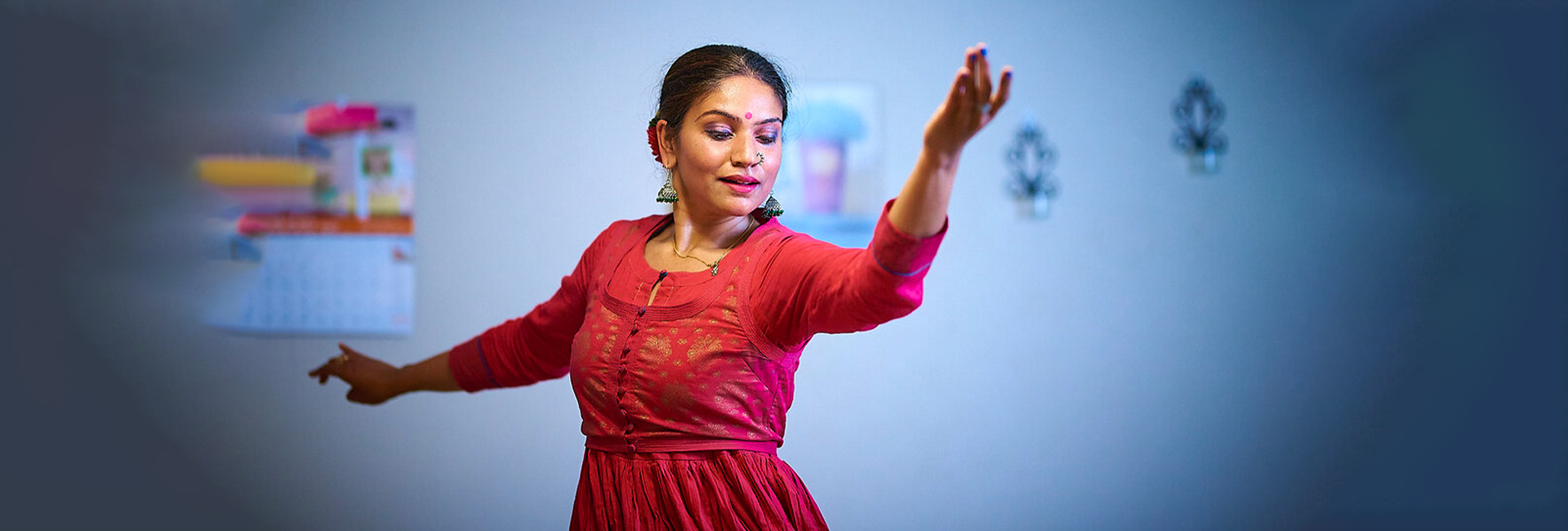(January 23, 2024) He was raised amidst drug dealers and sex workers. Sitting by the window of the small flat in Sparkbrook, Birmingham – which he shared with his grandmother – eminent dancer Aakash Odedra would often gaze upon litter-strewn, dreary streets. “I’d think the world outside doesn’t match the world within me. So I wanted to find a place where I could create a world that exists here,” the dancer shared in an interview, “It was around that time that I found dancing, and that was my only saviour. I trained in the classical Indian forms Kathak and Bharatanatyam, and dance became my god. It was my validation and my strength.”

And today, the same child is the visionary behind one of the world’s most prosperous dance companies. The dancer established the Aakash Odedra Company in 2011, where he seamlessly integrates his classical expertise with contemporary dance and theatre, showcased in acclaimed productions like Rising, Murmur, and JeSuis. “It has been a decade of endless achievements,” the Global Indian shared, “Being able to perform Rising in front of my gurus in India; winning the Bessie Award for best male soloist in the US; being awarded a BEM on the Queen’s Honours List; seeing the company grow from two individuals working from a costume cupboard to become a full Arts Council National Portfolio Organisation with many team members; seeing our Shiamak Daver Bollywood classes grow across the UK. There are so many things I am grateful for.”
A diamond in the rough
Aakash’s parents came to England from East Africa, a British colony where many Indians had settled in the late 19th century and early 20th century. However, the family never lost their roots. “I am personally in England as a result of the fall in the British Empire,” the dancer shared while talking about his childhood, “I remember, growing up my family remained very Indian, despite being ‘away’ from India for 110 years. So, it was but natural for me to choose to learn an Indian dance form over Western, growing up.”

However, the journey to adulthood proved to be challenging. His parents moved a lot due to their work, and that made his growing-up years quite difficult. “I come from a very complex background. I was raised by my grandmother. My mum and dad were, short version, doing their own thing,” says the dancer, who grew up knowing drug dealers, sex workers, and even a murderer. But like they say, every cloud has a silver lining. “My parents moved endlessly and we ended up living in Leicester. I fell in love with it. There are not many schools outside of Leicester that served Indian vegetarian food at lunchtime or sang Gujarati songs in assembly. It felt a little too good to be true at the start but I soon got used to it and started to explore this incredible city in all its diversity. Once Leicester felt like home, I made a promise never to abandon it. My promise was that wherever I went in the world I would bring part of that world back to share with my home city.” he shared.
At the tender age of 15, Aakash departed from his home in Birmingham and embarked on a solo venture to India. Unaware of his destination, he only knew that he had to undertake this journey. “I’d think the world outside doesn’t match the world within me. So I wanted to find a place where I could create a world that exists here,” shared the dancer, who soon started performing at various local centres.
Making of a dream
In 2011, after having performed at many national and international dance festivals and having made a name for himself, Aakash decided to start an organisation, which could merge the technicalities of contemporary dance forms and the fluidity of Indian classical forms – and thus was born Aakash Odedra Company. Speaking about his journey with the company for the last decade, the dancer shared in an interview, “10 years for me feels like a line drawn on the sands of time. On one hand, it feels like it passed so quickly, without stopping. On the other hand, it feels like it’s been a long journey to reach the ocean. For me, as for a little turtle hatching on a beach, the journey from shore to ocean is a short one but full of many dangers, only a few complete this arduous journey.”

One of the most acclaimed shows produced by the company has been Samsara, which is inspired by the Buddhist philosophy of the wheel of life, and the cycle of death and rebirth. “This was something that I and the rest of the world faced during the pandemic. My own extended family and friends were particularly hard hit. Every time you opened up Facebook it was: RIP, RIP, RIP. After my 37th funeral in those two years, I stopped counting. Death started to become part of life. Somewhere inside, this piece speaks about life and death, not as the end but as a continuum,” shared the dancer, who also went back to his classical technique, after moving more and more into contemporary dance. “I felt I’d detached from it for a long time. I’ve brought back the sense of roots,” he said.
View this post on Instagram
Apart from performing with his team, the dancer has also given several solo shows in the past few years. Speaking about his challenges, Aakash shared, “The greatest challenge for me was going from one process to another in making this work. I also needed to start making my body move differently. I have been doing classical Indian dance, Kathak and Bharatnatyam for a long time, and through the upcoming projects I am trying to move differently. I am still absorbing a lot, and I am sure this will influence my choreographic practice in the future.”
The company is currently preparing to reproduce the show Little Murmur for the Hakawy International Arts Festival for Children in Egypt, and Mehek for The Arts Center, NYUAD. “It’s a continuous process – something that gives me a lot of joy. Our company has several great South Asian dancers, who I believe are the most talented dancers of their respective generations,” the dancer shared.
Also Read: Dancer Aparna Satheesan is taking Indian classical art to new levels



